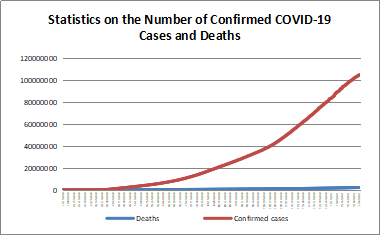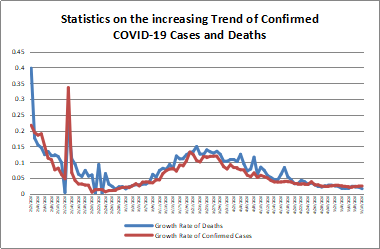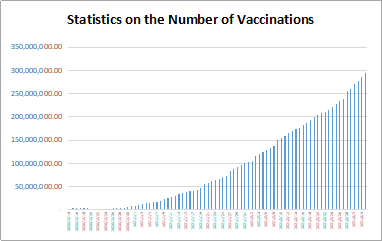The Agriculture and Food Sector Steadily Recovers Against the COVID-19 and International Organizations Call for Attention to Future Crises
Time:2021/10/26 BJT
1. Key concerns
Due to a hit on global food supply by the COVID-19 pandemic and multiple shocks on food supply by extreme weather, there are challenges on the global food security. International organizations called for global cooperation to meet future challenges in the food and agricultural fields.
On October 19 2021, the official website of OECD released a report of Keep calm and carry on feeding: Agriculture and food policy responses to the COVID-19 crisis. As the impact of the COVID-19 pandemic on the agriculture and food sector subsidies, public investments should be pivoted and shifted to enhance sector-wide resilience.
The report stated that the agriculture and food sector faced significant supply chain disruptions due to the COVID-19 pandemic and associated lockdown measures in a number of countries. However, the global production of major commodities, including wheat, maize, rice and soybean increased in 2020. While international agricultural trade dropped during the first few months after the outbreak, trade recovered rapidly. Despite some early turbulences in some markets, the overall average food prices remained relatively stable. The report introduced 776 policy measures on the agriculture and food to respond to the COVID-19 by countries (regions) which can be divided into seven categories: 1. institutional measures (legislation against waste); 2. information and coordination measures; 3. measures on facilitating trade; 4. biosafety and worker measures; 5. special support; 6. general support; and 7. food assistance and consumer subsidy etc. The report indicated that governments of countries (regions) dedicated a minimum of USD 157 billion in response to the COVID-19 impacts on the agriculture and food sector. USD 116 billion was earmarked in the form of grants, payments or other funding, while USD 41 billion was offered in the form of subsidised rates loans, new credit lines, and other mechanisms.
The report stressed that although countries (regions) should remain particularly vigilant with respect to food security for aftershocks as the pandemic impact, agriculture and food policies should gradually shift focus towards withstanding future shocks and crises, especially those resulting from climate change. Key priorities include scaling up investments in infrastructure and biosecurity, and strengthening agriculture and food innovation systems. The climate crisis provides a longer term imperative to reorient policies in ways that encourage sustainable agricultural productivity growth and strengthen resilience in view of fulfilling the 2030 Sustainable Development Goals.
2. Briefing on COVID-19 Pandemic
According to WHO statistics, calculated numbers of confirmed COVID-19 cases and deaths reached 241,411,380 and 4,912,112 by October 20, 2021. The U.S., the UK, Russia, Turkey, and India were the five countries (regions) with the highest number of new confirmed cases in the past seven days. The U.S., Russia, Romania, Ukraine and Brazil were the five countries (regions) with the highest number of new deaths in the past seven days.


https://covid19.who.int/
AIDS Healthcare Foundation (AHF) condemned the U.S. for wasting vaccines and called on the G20 to increase global aid and rollout of vaccine. Statistics from Our World In Data, an online research site of the University of Oxford, presented that 6,720,990,775 doses had been administered by October 19, 2021. On October 19, AHF decried the waste of at least 15 million COVID-19 vaccine doses in the U.S.. AHF calls on the Biden administration and leaders of other wealthy countries (regions) with excess vaccine stockpiles to do their due diligence to protect unused doses and ensure unneeded shots get to the most vulnerable countries with little-to-no vaccine access. Moreover, the global vaccine aid and rollout must be the priority at the upcoming G20 Summit on October 30. World leaders of all countries (regions) must commit to real action and ensure vaccines reach everyone.

https://ourworldindata.org/covid-vaccinations
In terms of the restrictions taken by countries (regions), the restrictive measures have been adjusted according to the vaccination progress in several regions. In America, Ontario, Canada launched the digital vaccines certificate ahead of the announcement. The White House announced a vaccine plan for kids ages 5-11 in the U.S. on October 15. In Europe, the government of St. Petersburg, Russia announced that from November 1 employees over the age of 60 that have not been vaccinated or provided a certificate of medical withdrawal from vaccination will be transferred to a remote mode of work and the vaccination of the personnel from the sector of service, government, the heads of organizations and individual businesses will be subject to special supervision. In Oceania, on October 19, the Australian Government introduced a new international COVID-19 Vaccination Certificate. The certificate features a Quick Response (QR) code which can be read by border control authorities to verify the COVID-19 vaccination status of passengers. In Asia, on October 19, Singapore began quarantine-free entry for fully vaccinated passengers from the U.S., Canada, the United Kingdom, Denmark, France, Italy, Spain and the Netherlands.


